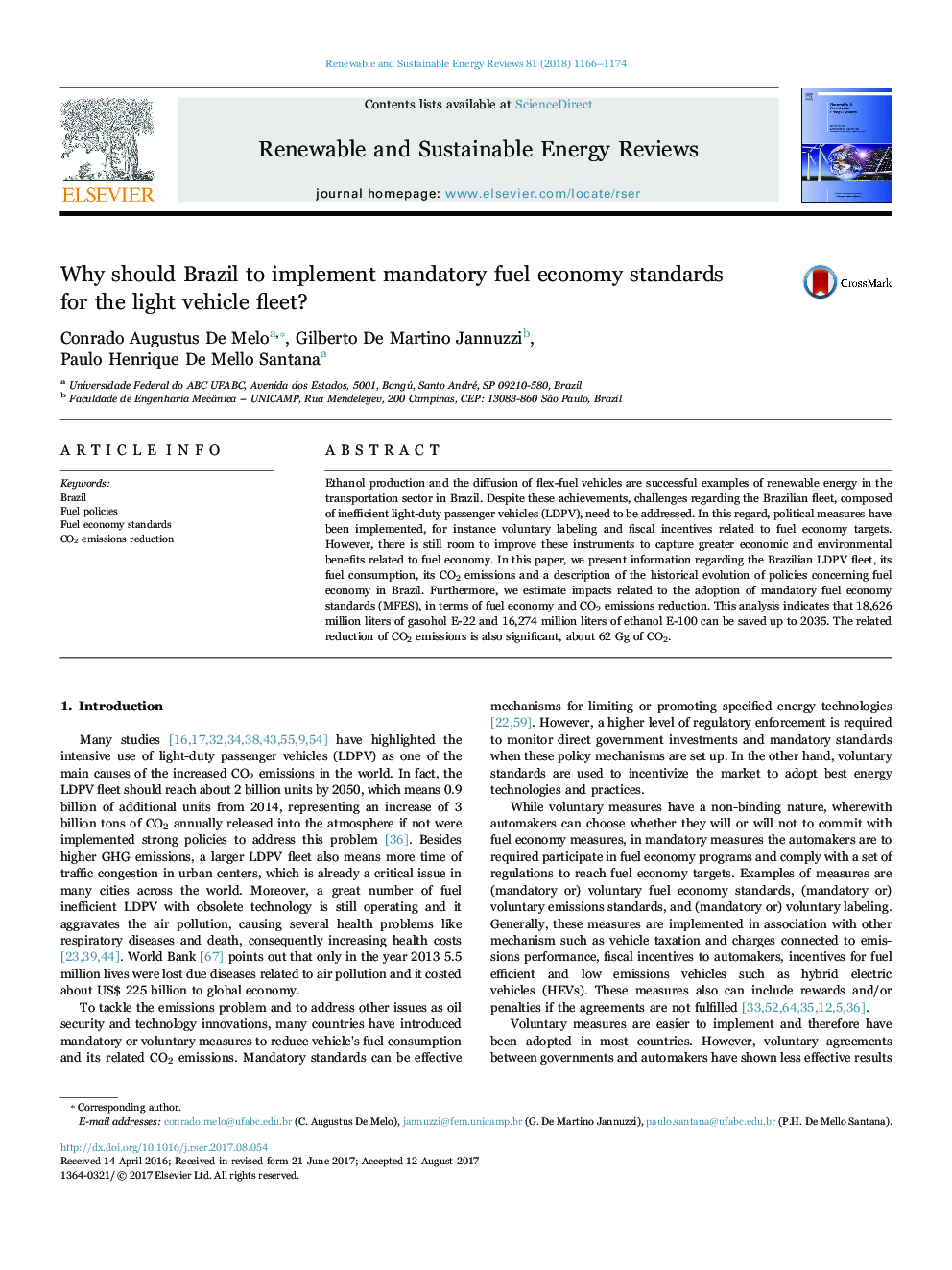| Article ID | Journal | Published Year | Pages | File Type |
|---|---|---|---|---|
| 5482024 | Renewable and Sustainable Energy Reviews | 2018 | 9 Pages |
Abstract
Ethanol production and the diffusion of flex-fuel vehicles are successful examples of renewable energy in the transportation sector in Brazil. Despite these achievements, challenges regarding the Brazilian fleet, composed of inefficient light-duty passenger vehicles (LDPV), need to be addressed. In this regard, political measures have been implemented, for instance voluntary labeling and fiscal incentives related to fuel economy targets. However, there is still room to improve these instruments to capture greater economic and environmental benefits related to fuel economy. In this paper, we present information regarding the Brazilian LDPV fleet, its fuel consumption, its CO2 emissions and a description of the historical evolution of policies concerning fuel economy in Brazil. Furthermore, we estimate impacts related to the adoption of mandatory fuel economy standards (MFES), in terms of fuel economy and CO2 emissions reduction. This analysis indicates that 18,626 million liters of gasohol E-22 and 16,274 million liters of ethanol E-100 can be saved up to 2035. The related reduction of CO2 emissions is also significant, about 62 Gg of CO2.
Related Topics
Physical Sciences and Engineering
Energy
Renewable Energy, Sustainability and the Environment
Authors
Conrado Augustus De Melo, Gilberto De Martino Jannuzzi, Paulo Henrique De Mello Santana,
